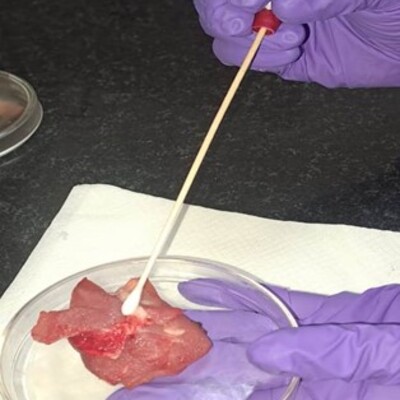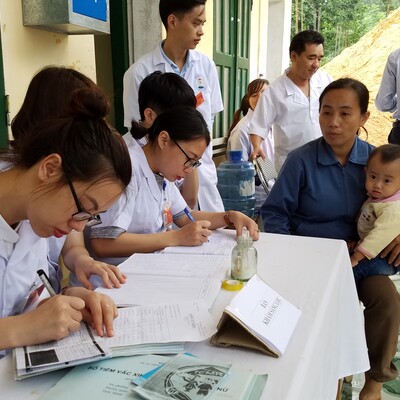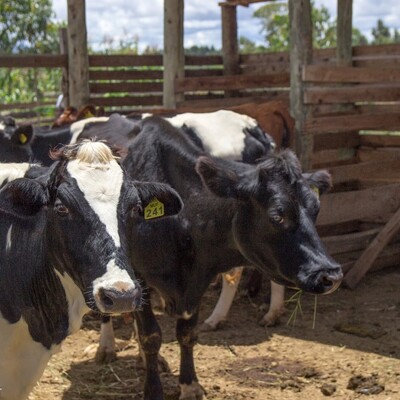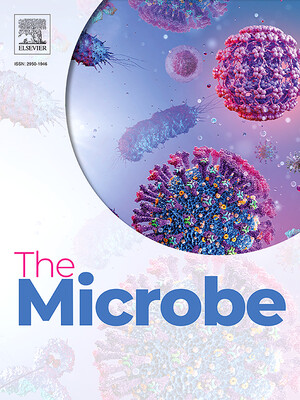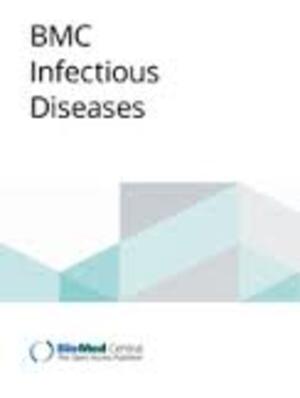
New study finds AMR in non-typhoidal Salmonella in samples across pork retail outlets and slaughterhouses in Vietnam
On 29 March 2022, a paper titled ‘Analysis of antimicrobial resistance in non-typhoidal Salmonella collected from pork retail outlets and slaughterhouses in Vietnam using whole genome sequencing’ was published in Frontiers in Veterinary Science. The study looked at 69 non-typhoidal Salmonella (NTS) isolates from a variety of pork retail outlets and slaughterhouses around Hanoi, Vietnam to examine the levels of antimicrobial resistance (AMR). It also examined whether retail outlets—supermarkets, traditional markets, convenience stores, or the higher-end boutique stores targeted at wealthier consumers—played any role in the food safety of the meat.
High levels of AMR and Salmonella are a serious issue in Vietnam—where pork consumption represents more than 70 per cent of the meat consumed. And recently, AMR within veterinary NTS isolates has become a widespread issue due to the abuse of antibiotics in livestock production. Worryingly, these antimicrobial resistant bacteria are now being transmitted to humans, making infections like NTS difficult to treat with antibiotic drugs like colistin, which are administered as a last resort against multidrug resistant (MDR) bacteria. The implications are worrying, as NTS is a leading cause of diarrhoeal diseases, and diarrheal diseases account for approximately half a million child deaths annually.
The study used genomic sequencing and bioinformatic analysis of the NTS isolates from two projects funded by the Australian Center for International Agricultural Research, PigRISK (2014-15) and SafePORK (2018-19), with support from the CGIAR Research Program on Agriculture for Nutrition and Health. The study analyzed samples from the provinces of Hung Yen and Nghe An and the capital Hanoi. It found that NTS and AMR levels were high among the samples at pig slaughterhouses and retail stores—regardless of the outlet. Besides resistance to colistin, high levels of resistance were also found to antimicrobials like ampicillin, piperacillin and a handful of other drugs that the World Health Organization has determined important to human health.
Since 2016, the Vietnamese government has been battling the prevalence of Salmonella and AMR through initiatives like the ‘Green outlets—safe farm products program’ which were designed to give consumers an environmentally-friendly, traceable source of meat products. However, the program has made little difference in the food safety of the meat. Multidrug-resistant isolates were found in all retail sources examined, with slaughterhouses having the highest proportion of MDR bacteria at 83.3%, supermarkets at 71.4% and boutiques stores at 60%, suggesting that pork meat in these stores is not much safer than traditional outlets.
The Vietnamese government has since responded with updated concern and efforts to raise awareness of and respond to AMR as part of the nationa action plan for combatting antimicrobial resistance in the human health sector (2013) and livestock production and aquaculture (2017 and 2021). Several international initiatives and projects have been assisting Vietnam in implementing these national action plans, in particular in the areas of surveillance capacity building.
--
To read about market-based approaches that can improve pork safety in Vietnam, click here
To read about interventions that can prevent pork-borne illnesses in northern Vietnam, click here
To read a general overview of typical pork value chains in Vietnam, click here







